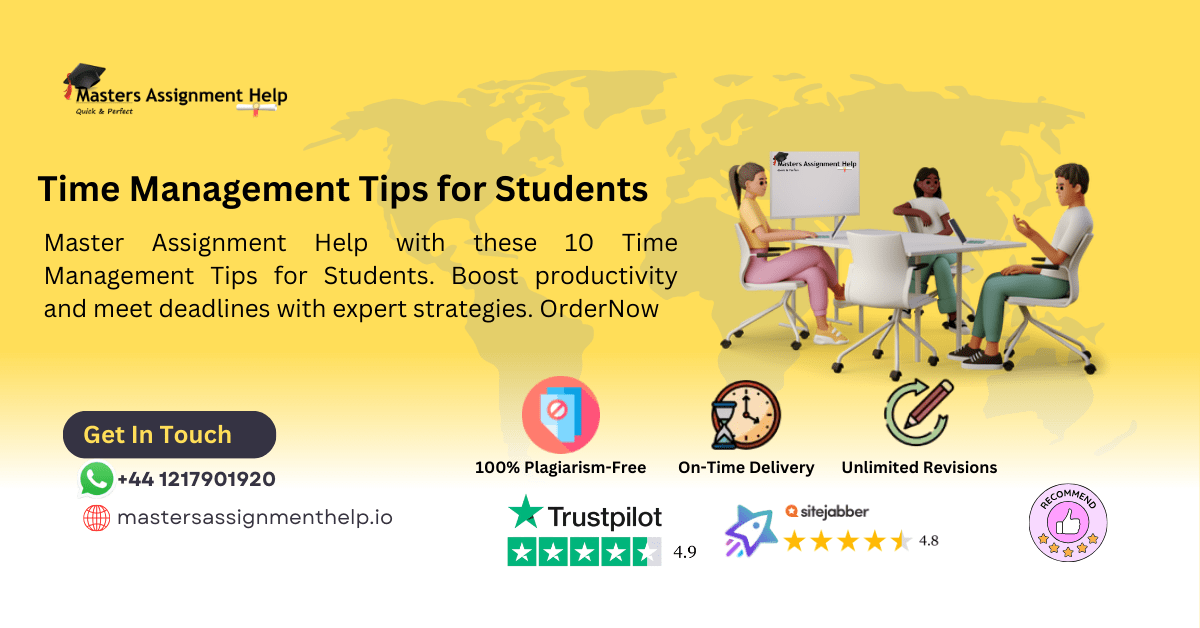
Managing time effectively is one of the most important skills students can develop. Balancing academic responsibilities, extracurricular activities, and personal life can be challenging, but with proper time management, students can achieve their goals without feeling overwhelmed. Here are some practical tips to help students maximize their time.
- Set Clear Goals: Start by identifying what you want to achieve. Break your goals into smaller, manageable tasks and prioritize them. For example, if you have an essay due, divide it into research, outlining, drafting, and revising steps. Clear goals provide direction and help you focus on what matters most.
- Create a Schedule: Use a planner, calendar, or digital tool to map out your day. Allocate specific time slots for study, assignments, and other activities. Be realistic with your scheduling and leave room for breaks to recharge. A well-structured schedule helps you stay organized and ensures you’re dedicating enough time to each task.
- Avoid Procrastination: Procrastination is one of the biggest obstacles to effective time management. Start tasks early, especially the ones you find challenging. Break large projects into smaller, less intimidating tasks and tackle them individually. Overcoming procrastination is key to staying on track.
- Use the Pomodoro Technique: The Pomodoro Technique is a time management strategy that involves working in focused intervals, usually 25 minutes, followed by a 5-minute break. After four intervals, take a longer break of 15-20 minutes. This method keeps you productive while preventing burnout.
- Eliminate Distractions: Identify what distracts you and take steps to minimize it. This might mean turning off notifications on your phone, studying in a quiet environment, or using apps that block social media during study sessions. Reducing distractions helps you stay focused and get more done in less time.
- Learn to Say No: It’s important to recognize your limits and avoid overcommitting yourself. If an activity or task doesn’t align with your priorities, it’s okay to say no. This allows you to focus on what’s important and manage your time more effectively.
- Review and Reflect: At the end of each day, take a few minutes to review what you’ve accomplished. Reflect on what went well and what could be improved. Use this insight to adjust your plan for the next day. Regular reflection helps you stay on track and continuously improve your time management skills.
- Stay Organized: Keep your study materials, notes, and assignments organized. This saves time when you’re looking for resources and ensures you’re always prepared. Use folders, binders, or digital tools to keep everything in order.
- Practice Self-Care: Good time management isn’t just about work—it’s also about maintaining balance. Make time for sleep, exercise, and a healthy diet to keep your mind and body energized. Taking care of yourself enhances your focus, productivity, and overall well-being.
- Use Technology Wisely: Take advantage of apps and tools designed to help with time management. Apps like Google Calendar, Trello, or Notion can help you plan and organize your tasks efficiently. However, avoid spending too much time on unnecessary technology use that can lead to distractions.
Effective time management
Effective time management is a skill that takes practice, but it’s well worth the effort. By setting clear goals, creating a schedule, and eliminating distractions, students can balance their academic and personal lives more effectively. With these tips, you can take control of your time, reduce stress, and achieve your goals with greater ease. Start implementing these strategies today and watch how they transform your productivity and success!
If You need assignment help, click here: Get Assignment Help


